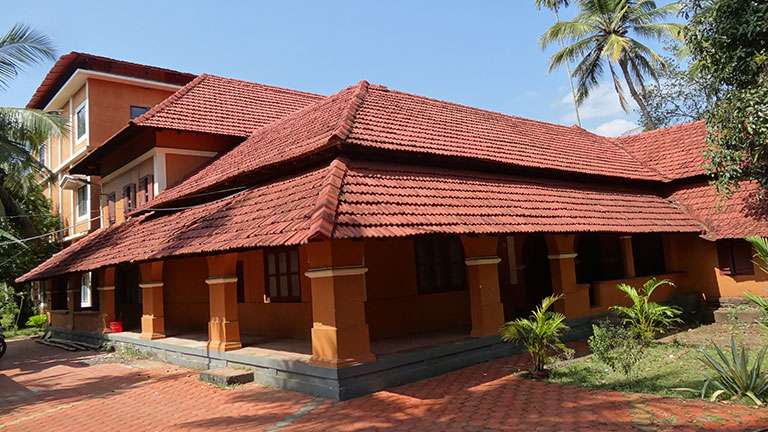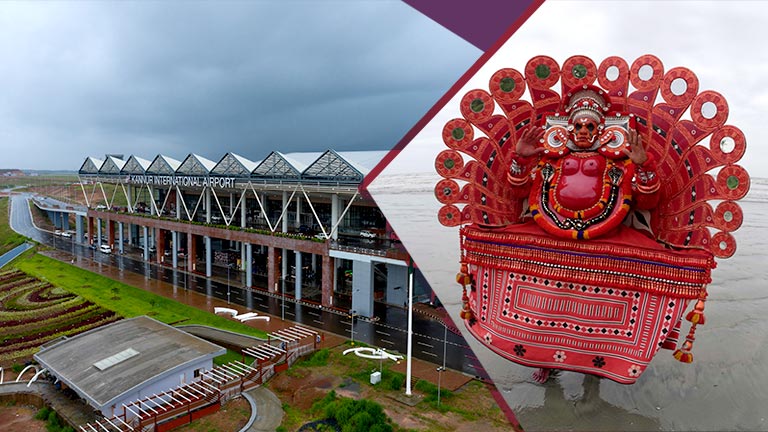Chirakkal and the Kerala Folklore Academy

Chirakkal, about six kilometers north of Kannur town, was once the capital of the local rulers, and a known centre for folk arts and culture. The Kerala Folklore Academy has been set up here in recognition of the importance of this place as a cultural centre.
The Academy was established in 1995 at the Chirakkal Kovilakam, the home of the erstwhile Chirakkal royal family. The tranquil ambience of the fort and its proximity to the Chirakkal Lake have gained it a place on the tourist map of Kerala.
The 130-year-old building of the Academy, constructed in accordance with the Kerala style of architecture, houses the administrative departments of the Folklore Academy, a folklore museum and a library.
A visit to the Folklore Academy gives one unique insights into the artistic heritage of Kerala. The museum preserves the costumes, headgear and other paraphernalia related to the various folk arts. These include life-size models of performers of the ritualistic temple dances like Theyyam and Padayani, tribal musical and percussion instruments, farm implements, weapons, as well as photographs of various art forms.
The Academy also gives information about the martial art form of Kalaripayattu, the dance forms of Marathukali and Poorakkali, ballads like Vadakkanpattu and Vedanpattu and so on. Folk plays like Godavari, mural paintings called Thodikkalam, and Muslim art forms like Oppana are also well represented here. Objects used in other ritual arts like Kuthu Ratheeb, Deva koothu, Kaliyootu, Mudiyettu, etc. are also on display. Besides, the Academy promotes learning and research on folk arts like Chavittu natakam, Garudan thullal, etc. The library, a knowledge hub of folk arts, is frequented by researches, scholars and connoisseurs of the traditional arts of Kerala. The Academy also publishes books and periodicals occasionally.
The Academy aims to preserve the folk culture and heritage of Kerala and also strives to ensure the welfare of folk artistes.


